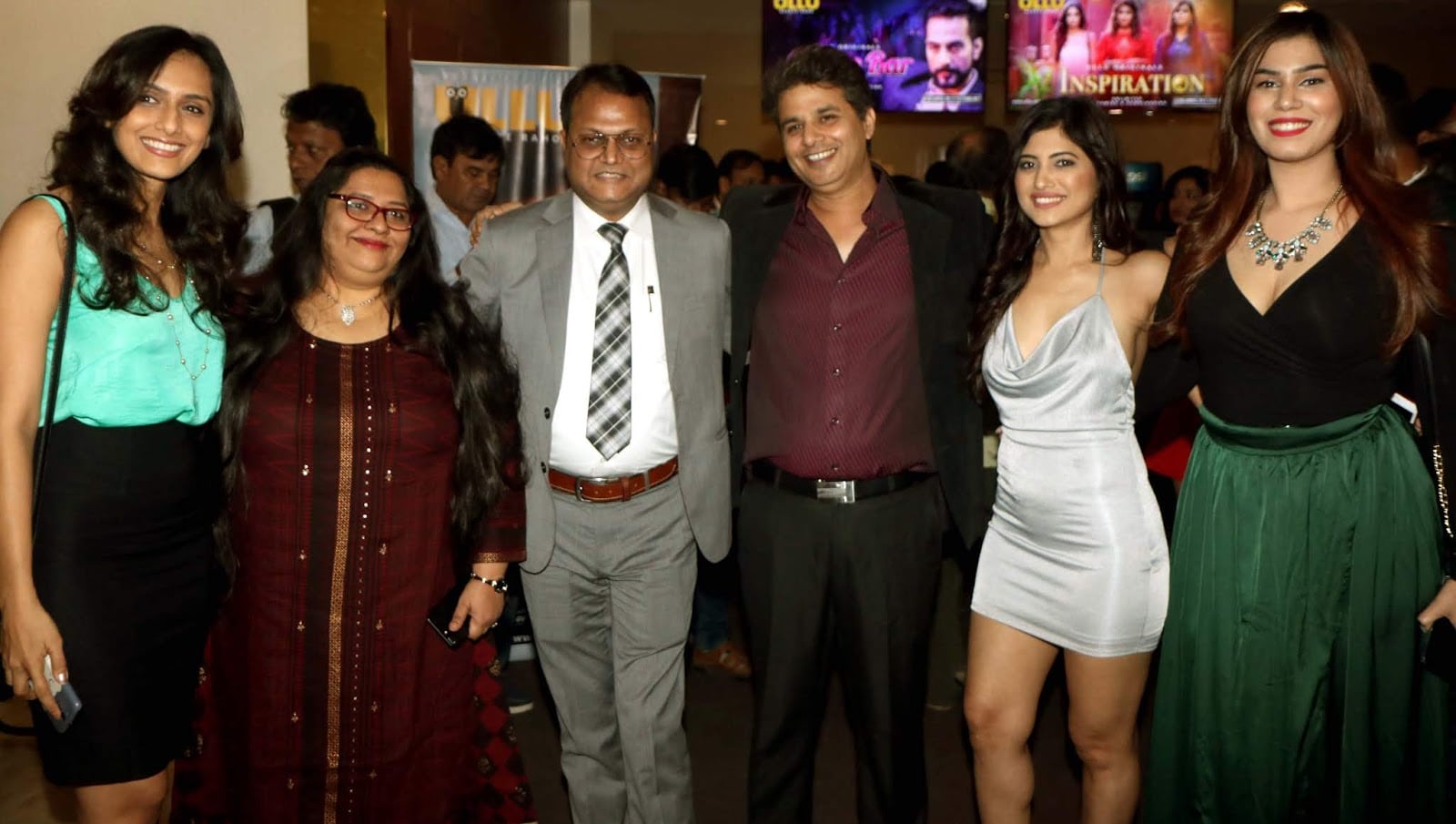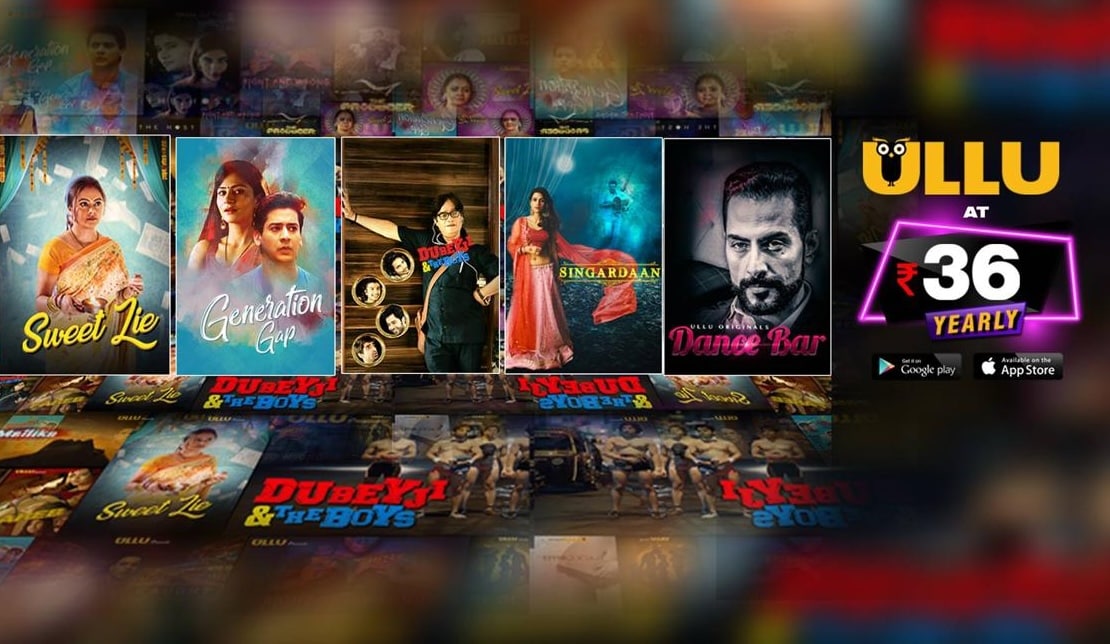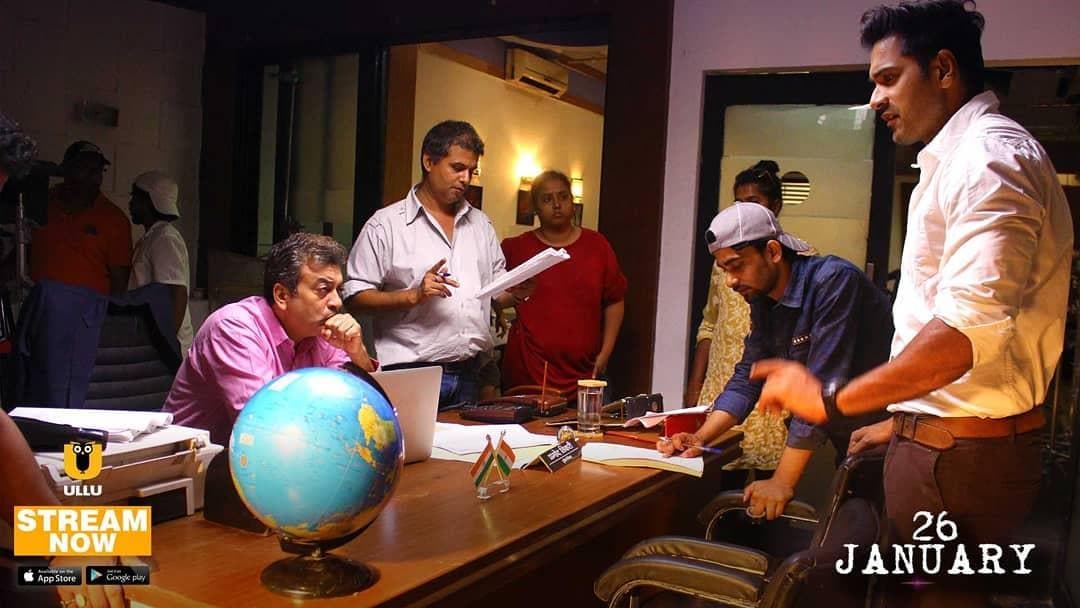Agarwal thought for a bit and then said in Hindi: “I had developed a fever, wondering what name to give. I wanted a word that people recognise and use in their daily lives. Anyone who is awake late into the night binge watching shows, we call him ‘ullu’, no?”
Ullu in English is owl—nocturnal birds with a carnivorous diet.
In India’s popular imagination, the Ullu app has come to stand for another thing—high quality soft-core entertainment. So much so that last month, the ministry of information and broadcasting banned the platform, along with over 20 others, for streaming sexually explicit content.
An appendix to the order, 90 pages long, and informally circulated, laid out in great detail the rationale for the ban. Along with screenshots from streaming shows as evidence, the appendix outlines the runtime of the shows, the sexual content timeline, the total sexual content length, and a host of remarks for every show.
Sample this: “The content is aimed to provoke sexual desires rather than inform or educate”; “the content appeals to base and morbid interests, and has the potential to harm and corrupt the audience”; “there is hardly any storyline. Some sort of pretentious ‘story’ is created which cannot be termed as a story even in a loose sense of the word”.
Since the order, the Ullu app has gone missing from the Android Play Store and the Apple App Store. Ullu’s website is also inaccessible, as are its handles on X (formerly Twitter), Instagram, and YouTube. However, the company’s WhatsApp channel and Facebook page are still public, although they haven’t been updated since last month.
Things appeared very different even a few months ago. Riding the covid-19 pandemic lockdown boom in streaming businesses, Ullu Digital Ltd, the company that operates the Ullu app, grew 12-fold to ₹100 crore in revenue between 2019-20 and 2023-24. And last year, Agarwal filed for an initial public offering (IPO) to raise over ₹100 crore on the SME exchange, claiming Ullu Digital as India’s only profitable streaming platform. It turned a net profit of ₹13 crore in 2023-24.
How did Agarwal end up as the king of bold entertainment in India? And what happens now to his once buzzing media properties? Apart from Ullu, he runs two more streaming services—Atrangii, an entertainment platform, and Hari Om, which is dedicated to Hindu mythology. In addition, Agarwal runs an e-commerce business that sells pyjamas and inner wear called Ullu99.
Man of steel
Agarwal was not always in the business of entertainment. His family business, started in the ‘90s in Lucknow, involves distribution and sale of thermo-mechanically treated rebars (a type of high-strength steel bar), steel materials, cement, and related goods. MCA filings show his companies—Jaypeeco India Pvt. Ltd and Himalaya Fibertech Cement Pvt. Ltd— are fairly modest undertakings, with ₹4.64 crore and ₹4 lakh in total revenue, respectively, as of 2023-24, and negligible net profit.
Agarwal also runs a charitable trust in Lucknow and a school, Jaypee Convent, where his wife Megha Agarwal was once a principal, as per her LinkedIn profile. Little else is known about the business and Vibhu Agarwal has never publicly spoken about his ventures in his hometown.
In 2018, as India’s OTT industry was just taking birth, Agarwal set up an office in Mumbai and recruited writers to draft scripts for short, snappy films. Among the earliest such writers was Amitava Mitra who has worked on iconic shows such as Star TV network’s 2012 thriller, Savdhaan India.
“The money initially was very less but it was good to work with Vibhu ji,” Mitra told Mint in an interview. It took him about a day to write one 40-min film, and he was paid ₹25,000 per script, in cash, by the end of the day.
A few months later, Agarwal launched Ullu as a standalone streaming platform and app, complete with the launch party referenced above.

View Full Image
Those were pivotal days in India’s over-the-top (OTT) industry—Hotstar was the leader in the business as it streamed the Indian Premier League while Netflix and Amazon Prime Video had just entered the country. Reliance-owned Viacom had launched its own streaming platform, Voot, with an array of original shows headlined by big names.
In all this, Ullu was a mere footnote. Until the pandemic.
Boom years
As people were locked up in their homes during the pandemic, facing work-from-home mandates or getting laid off, India’s streaming business began to boom. In 2022, India’s online video viewers grew to 527 million, up from 406 million in 2019, as streaming platforms invested ₹8,200 crore on making and acquiring content. Meanwhile, cable TV subscription revenue declined steadily, from ₹46,800 crore in 2019 to ₹39,200 crore in 2022, per a joint report by industry body FICCI and consulting firm EY.
Ullu saw rapid growth in demand as well, and began churning out tens of web series every month, scripted, shot, edited, and released within a matter of weeks. As demand soared, Ullu also hiked its subscription prices from the measly ₹36 a year launch offer to weekly, monthly, quarterly, and annual subscription plans running from under ₹200 apiece to ₹999 for the year.
 ₹36 a year.” title=”Promotional offer at Ullu app’s launch in 2019. Subscription prices started at ₹36 a year.”>
₹36 a year.” title=”Promotional offer at Ullu app’s launch in 2019. Subscription prices started at ₹36 a year.”>View Full Image
This was when writers, directors, and other staff on Ullu originals began making better money, too.
“In 2022, I was introduced to the team at Ullu, and I began editing some shows for the platform,” Raifee, a writer-director who goes by his professional mononym, told Mint.
His specialty is writing and directing pacy thrillers with erotic overtones. His work has featured in Ullu and Altt, among other platforms. He, like others in the TV and now OTT business, churns out content on an assembly line. Consider this: Raifee has over 20 credits as director of TV and web series in 2025 alone, many of which are Ullu originals.
“In the last three years, I have worked on over 75 web series across platforms,” he said.
Along with volume, Ullu also began to increase the budget of their shows. “We made seven episode shows on a budget of ₹16 lakh or so,” Raifee said. “Everything was done very professionally. We don’t shoot these shows with jugaad (improvisation). There is proper casting; location scouting; we work with five camera setups; a professional director of photography or cinematographer, and a crew of over 70 people,” he added.
Mitra, too, began to make more money for his writing. “I started with ₹25,000-30,000 per script but then it went up to ₹65,000-70,000 per episode,” he said. “I understood Vibhu ji is launching an erotic app, but I didn’t have a problem with it. I have watched many erotic thrillers from around the world.”
So was erotica always Ullu’s mission? Not exactly.
In his launch party address in 2019, Agarwal had laid out his vision for Ullu: an affordable app that any “middle-class” Indian family can afford without worry, featuring both films and web-series that centre around everyday issues.
Its earliest originals included a show named Dance Bar, focused on the lives of women working in Mumbai’s famous dance bars and a crime-drama film, Ferrous, starring Hindi film actor Vijay Raaz in the lead. It premiered at an international film festival in Lagos, Nigeria.

View Full Image
Yet, there was always a ‘bold’ scene or two in many of these originals, thrown in for context, such as in the web series Dance Bar. Another show that Mitra worked on, named Tadap, featured a teenage girl trying to escape the control of her patriarchal father.
“The team studied the market dynamics and learnt that the audiences coming to Ullu were primarily engaging with bold content,” Prashant Nigam, vice president at Ullu, told Mint in an email response to a detailed questionnaire. “As the diversification began, Ullu’s focus changed to bold content.”
However, as Ullu morphed from the home of racy thrillers and dramas to the destination of soft-core entertainment, its fortunes rose. By 2024, Ullu Digital had crossed ₹100 crore in revenue, with a modest profit margin. Most of the company’s revenue came from subscriptions, with some money generated from advertising on the Ullu platform and ad revenue from the company’s YouTube channels.
In its draft red herring prospectus last year, the company said Ullu had nearly 2.1 million active paying subscribers, nearly double from the 1.14 million in 2021, but lower than the peak of over 2.7 million users as of March 2023.
As Agarwal’s media empire boomed, his family business of cement and steel began to decline. MCA filings show the total revenue of Jaypeeco India fell from over ₹68 crore in 2014-15 to just over ₹4 crore in 2023-24. Similarly, Himalaya Fibertech’s revenue fell from a high of over ₹147 crore in 2015-16 to just over ₹4 lakh as of 2023-24.
Ullu’s success also spawned the term ‘Ullu Girls’. They were actresses who starred in the platform’s explicit originals. Last year, the Ullu app began a live streaming division called Ullu Live. Here, actresses and ‘hot’ women would feature on ‘fun’ paid live streams, only for subscribers.
New faces, old story
Creatives who worked with Ullu say Vibhu Agarwal was closely involved in every decision of the platform’s originals from its earliest days.
“There is not a single story I have written for Ullu where Vibhu ji did not sit in for at least one narration,” Mitra said. “He has a keen ear for stories and he knows what sells for his audience. Once, during a narration, he even pointed out what was going wrong in my story,” he added.

View Full Image
Over time, Agarwal cut the cost of producing original content, among the biggest expenses for any streaming platform, to boost the bottomline. Mitra and Raifee told Mint that production budgets for Ullu shows fell from ₹4-7 lakh per episode during the pandemic to as little as ₹1-2.5 lakh per episode since last year. Ullu’s Nigam, however, clarified that the platform always maintained a budget of ₹3.5-4 lakh per episode.
Meanwhile, some actors said that lower budgets meant newer faces, lower pay, and often, bad working conditions.
“Initially, when I worked in my hometown Ambala, I could only earn ₹7,000-12,000 a month in any job,” YouTuber Shyna Khatri, formerly a star of several Ullu original shows, told Mint. “When I began auditioning for web series in Mumbai, I was offered ₹15,000 a day. How could I say no?”
Khatri started with shows for a rival streaming platform, PrimePlay, before working on Ullu originals such as Malai and Tohfa.
Soon enough, she became a popular ‘Ullu Girl’. Nonetheless, she realised that the tight schedules and work conditions weren’t worth the money. “We were shooting five-six episodes a day, back to back,” Khatri said about the OTT platforms. “Sometimes, you even had to put in 24 hour shifts.”
Many of these shows were shot in a rural setting—outside Mumbai, near Vasai or Virar. At times, they weren’t served food or given accommodation. “Besides, from the ₹10,000-15,000 a day we made, the casting director and the dubbing artist would take a cut. Then there is TDS (tax deducted at source). What is left at the end of the day?”
Eventually, Khatri fell out with Ullu and decided to strike it out on her own as a YouTuber and podcaster. Among her most popular episodes is an interview with web series star Yuvraaj Gupta called The Dark Reality of Ullu Actors.

View Full Image
However, others say phasing out actresses became a strategic decision.
“Audiences kept coming back for Ullu shows to see brand new faces, not the same actresses over and over again,” Raifee said. “The trick is to keep casting new actors and actresses.”
Devotional twist
As Ullu expanded, it also came under scrutiny for its ‘bold’, explicit content. Soon enough, Agarwal expanded rapidly into several new lines of business to counterbalance his erotic money-spinner.
In 2022, he launched a free-to-air Hindi entertainment TV channel called Atrangii, airing dramas, thrillers, crime shows, even mythology without a subscription fee. However, a year later, the company shut down the free TV channel and became an OTT app instead.
In May last year, Agarwal launched the Hari Om OTT app, a streaming platform dedicated to Hindu mythology and religious shows, such as a retelling of the epic Ramayana along with devotional music and livestream darshan of India’s holiest temples. Both Atrangii and Hari Om are operated by the same company—Atrangii Network Pvt. Ltd.
In June last year, Agarwal also changed the name and nature of another group company, the e-commerce venture named Ullu99. This company sells men’s underwear and basics, including t-shirts. While its website is still operational, Ullu’s Nigam told Mint this business has been shut down. Its parent entity was renamed Woh Wali Film Pvt. Ltd, whose primary business is producing original content for other platforms.
Finally, right before it was banned this year, Ullu announced a blockchain-based token named Ullu Coin. The token was used as a way to pay for Ullu live streaming and other paid features on the app, Ullu’s vice-president Nigam told Mint.
Game over?
Even as Agarwal expanded into more palatable lines of business, Ullu remained under scrutiny. Last year, news organization The Morning Context reported that a Dubai-based holding firm had bought 5% stake in Ullu Digital Ltd; the Dubai company is said to have links with an alleged hawala operator, under investigation in the Mahadev betting app case and in the alleged fraud by the promoters of Gensol Engineering.
Meanwhile, last March, the National Commission for Protection of Child Rights also asked the government to investigate Ullu for allegedly targeting school-age children with adult content. In February this year, the ministry of information and broadcasting issued an advisory, asking all OTT platforms to adhere to the code of ethics of the IT Act, 2021 and avoid “obscene” content. The ban came in July this year and was communicated privately to app stores and internet service providers.
Agarwal now lists himself as the chief executive officer (CEO) and founder of Atrangii and Ullu99 on his LinkedIn profile, but marked the end of his stint as Ullu’s CEO in August 2023.
Data from the ministry of corporate affairs show he resigned as Ullu Digital’s managing director on 24 March 2025. His wife, Megha, resigned from the company’s board in July last year.
“I think Ullu and other platforms took their chances, held their breath, and dealt with complaints piecemeal,” Ameet Datta, founder of ADP Law Offices, a law firm, told Mint. “I call these apps grey-line OTTs—they straddle the grey line near softcore pornography.”
Ullu and other platforms took their chances, held their breath, and dealt with complaints piecemeal.
—Ameet Datta
Datta points out that the language of the IT Act sections dealing with obscenity and pornography are often vague, and judgements on banning explicit content often rely on constantly evolving community standards. That leaves the Act prone to misuse and at the mercy of government censorship.
Does that mean Vibhu Agarwal and Ullu may have a fighting chance against the ban? Perhaps.
“There are other mainstream platforms in India that also have full frontal nudity and other explicit elements. But if your entire app is a vehicle of pornography, or associated with only objectionable content, the authorities may have no choice but to ban the app altogether,” Datta said.
Meanwhile, people Mint spoke to say Agarwal and his team have been transferring some Ullu originals to Atrangii, minus the sexually explicit content. Nigam says only ‘premium’ Ullu originals are being transferred.
Despite the controversies and the tag of obscenity, Vibhu ji or Vibhu sir, as Agarwal is fondly called by colleagues in Mumbai, remains a popular figure. For some people like writer Amitava Mitra, he is a reliable collaborator in an industry with precarious job security.
“Vibhu ji, Ullu, and Atrangii came at a very difficult time in my career, when I needed work and the money,” Mitra said. “I am grateful to him.”
Ullu app,IT Act,OTT apps,Gensol Engineering,Atrangii,Jaypeeco India,Himalaya Fibertech Cement,Indian OTT industry,Ferrous,Ullu Girls,PrimePlay
#Vibhu #Agarwal #hard #landing #crore #softcore #empire

